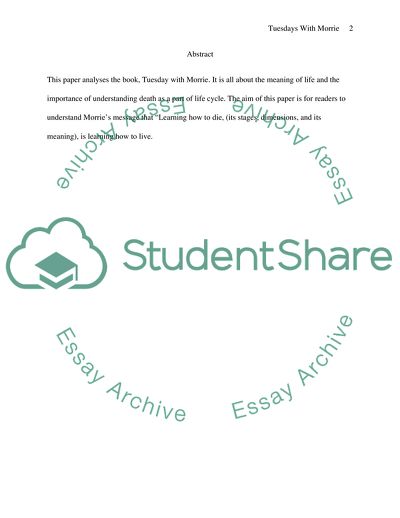Cite this document
(Tuesday with Morrie Book Report/Review Example | Topics and Well Written Essays - 2750 words, n.d.)
Tuesday with Morrie Book Report/Review Example | Topics and Well Written Essays - 2750 words. Retrieved from https://studentshare.org/psychology/1744238-an-analysis-of-the-book-tuesdays-with-morrie-in-terms-of-death-dying-and-bereavement
Tuesday with Morrie Book Report/Review Example | Topics and Well Written Essays - 2750 words. Retrieved from https://studentshare.org/psychology/1744238-an-analysis-of-the-book-tuesdays-with-morrie-in-terms-of-death-dying-and-bereavement
(Tuesday With Morrie Book Report/Review Example | Topics and Well Written Essays - 2750 Words)
Tuesday With Morrie Book Report/Review Example | Topics and Well Written Essays - 2750 Words. https://studentshare.org/psychology/1744238-an-analysis-of-the-book-tuesdays-with-morrie-in-terms-of-death-dying-and-bereavement.
Tuesday With Morrie Book Report/Review Example | Topics and Well Written Essays - 2750 Words. https://studentshare.org/psychology/1744238-an-analysis-of-the-book-tuesdays-with-morrie-in-terms-of-death-dying-and-bereavement.
“Tuesday With Morrie Book Report/Review Example | Topics and Well Written Essays - 2750 Words”. https://studentshare.org/psychology/1744238-an-analysis-of-the-book-tuesdays-with-morrie-in-terms-of-death-dying-and-bereavement.


